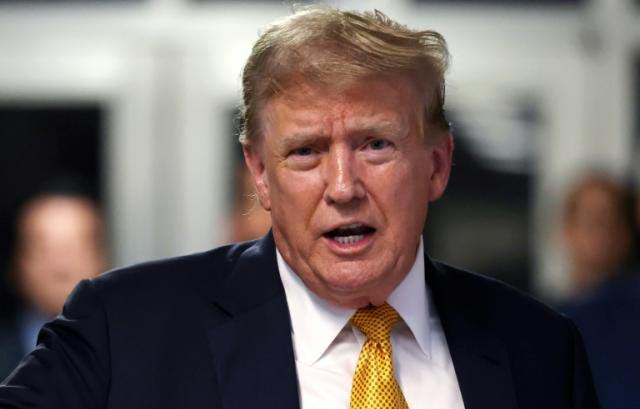
MIAMI, July 6, 2024 (BSS/AFP) - Attorneys for Donald Trump asked a judge on Friday to pause his case on charges of mishandling top secret documents, citing a Supreme Court ruling that a former president has broad immunity from prosecution.
Trump, 78, is accused in an indictment filed in Florida by Special Counsel Jack Smith of endangering national security by holding onto top secret documents after leaving the White House.
In a court filing on Friday, Trump's lawyers asked District Court Judge Aileen Cannon for a partial stay of proceedings to allow for an assessment of the "implications" of the Supreme Court ruling on the Florida case.
The nation's highest court ruled on Monday that a former US president has absolute immunity from criminal prosecution for "official acts" taken while in office.
Trump, the Republican candidate in November's White House election, has lodged an immunity defense in the four criminal cases that he is facing.
He was convicted in New York in May of 34 counts of falsifying business records to cover up hush money payments made to porn star Stormy Daniels, who alleged she had a sexual encounter with the real estate tycoon.
Trump's lawyers immediately seized upon the Supreme Court decision to ask the judge who presided over the New York case to have the jury's guilty verdict set aside.
Sentencing in the hush money case, the first criminal conviction of a former US president, had been scheduled to take place on July 11 but Judge Juan Merchan delayed it -- if still necessary -- until September 18.
In the Florida case, Trump is facing 31 counts of "willful retention of national defense information," each punishable by up to 10 years in prison.
He also faces charges of conspiracy to obstruct justice and making false statements.
Trump allegedly kept classified documents -- which included records from the Pentagon and CIA -- unsecured at his Mar-a-Lago home and thwarted efforts to retrieve them.
Judge Cannon, a Trump appointee, has already indefinitely postponed the documents trial and has come under fire from some legal experts for rulings seen as overly sympathetic to the former president.
Trump also faces charges in Washington and Georgia of conspiring to subvert the results of the 2020 election, but those cases have been complicated by the immunity ruling and appear unlikely to go to trial before the November presidential vote.